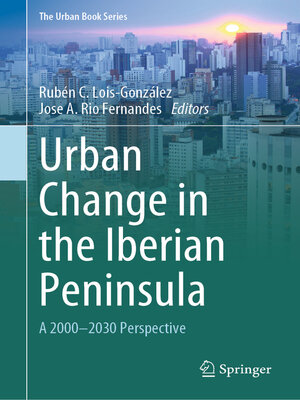Urban Change in the Iberian Peninsula
ebook ∣ A 2000–2030 Perspective · Urban Book
By Rubén C. Lois-González

Sign up to save your library
With an OverDrive account, you can save your favorite libraries for at-a-glance information about availability. Find out more about OverDrive accounts.
Find this title in Libby, the library reading app by OverDrive.



Search for a digital library with this title
Title found at these libraries:
| Library Name | Distance |
|---|---|
| Loading... |
The book addresses the situation of the urban world in Spain and Portugal in the first quarter of the 21st century. Cities and metropolitan areas have become the key to understanding the organization of the territory and the economic system in the Iberian Peninsula. Iberian cities drive financial-based business, and they constitute the main centers of commerce and tourism, since urban and economic organization are presented as two directly related variables. This reality is defined by the primacy of three main cities (Madrid, Barcelona, and Lisbon), followed by six metropolitan areas with around one or two million inhabitants (Porto, Bilbao, Zaragoza, Valencia, Seville, and Malaga). As in the large capitals, problems of income inequality and access to housing, mobility, and government also affect the remaining regional urban systems.
This book examines these urban areas through six major themes, which are developed in more than 25 chapters. The themes are urbanization, inequality, finance and housing markets, consumers and new residents, mobility, and governance. Contributions from leading geographers and urban planners from the most important universities of the Iberian Peninsula comprise this overview of metropolitan areas of Spain and Portugal.







